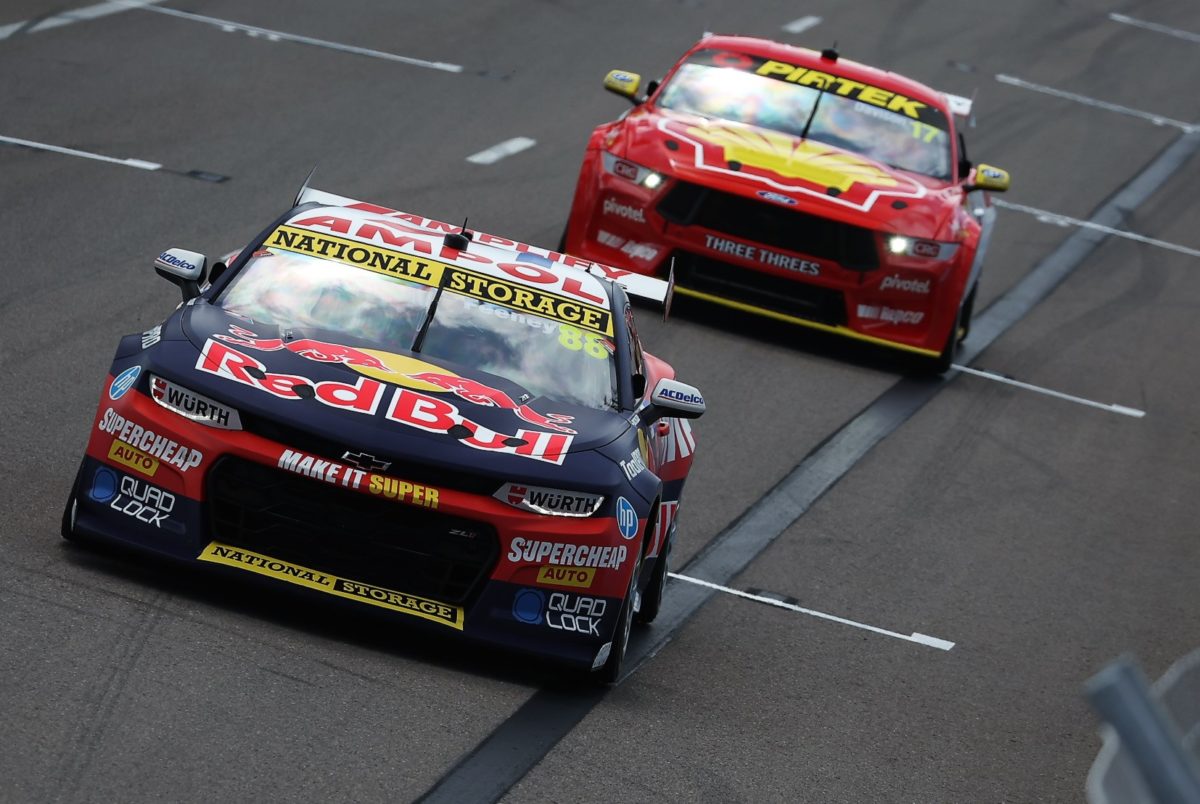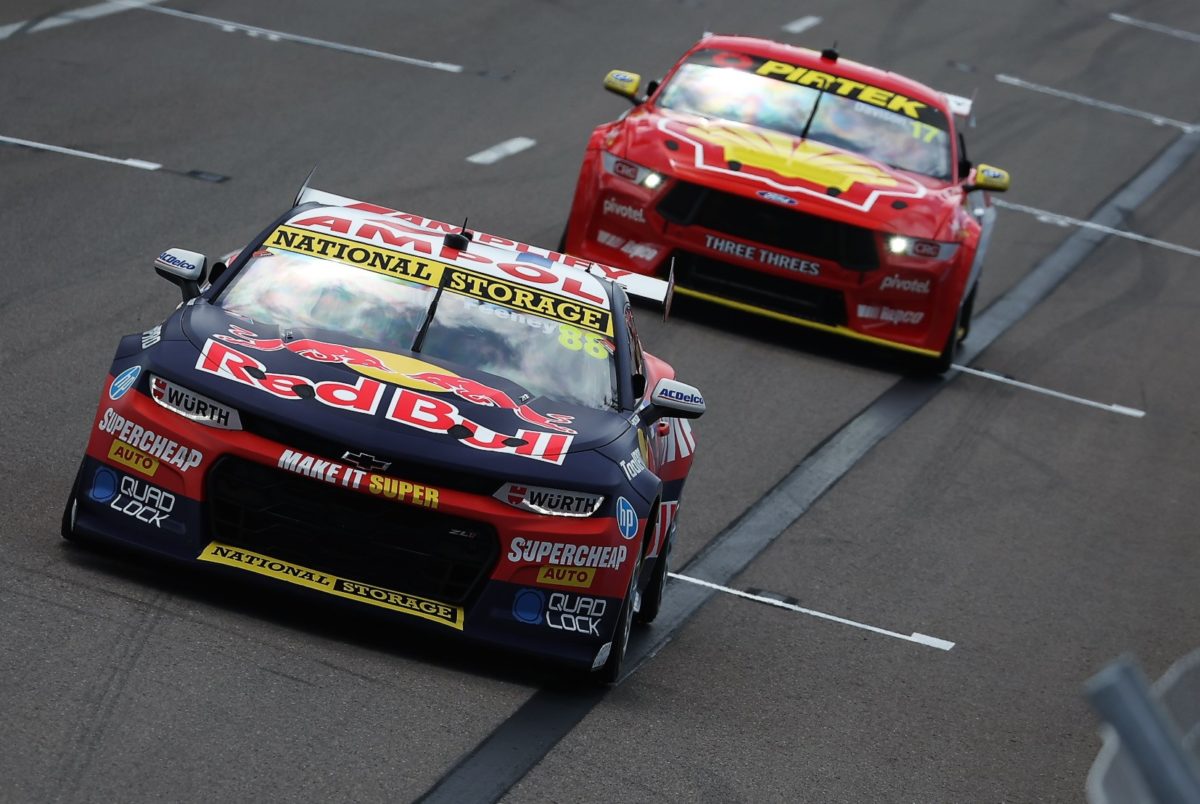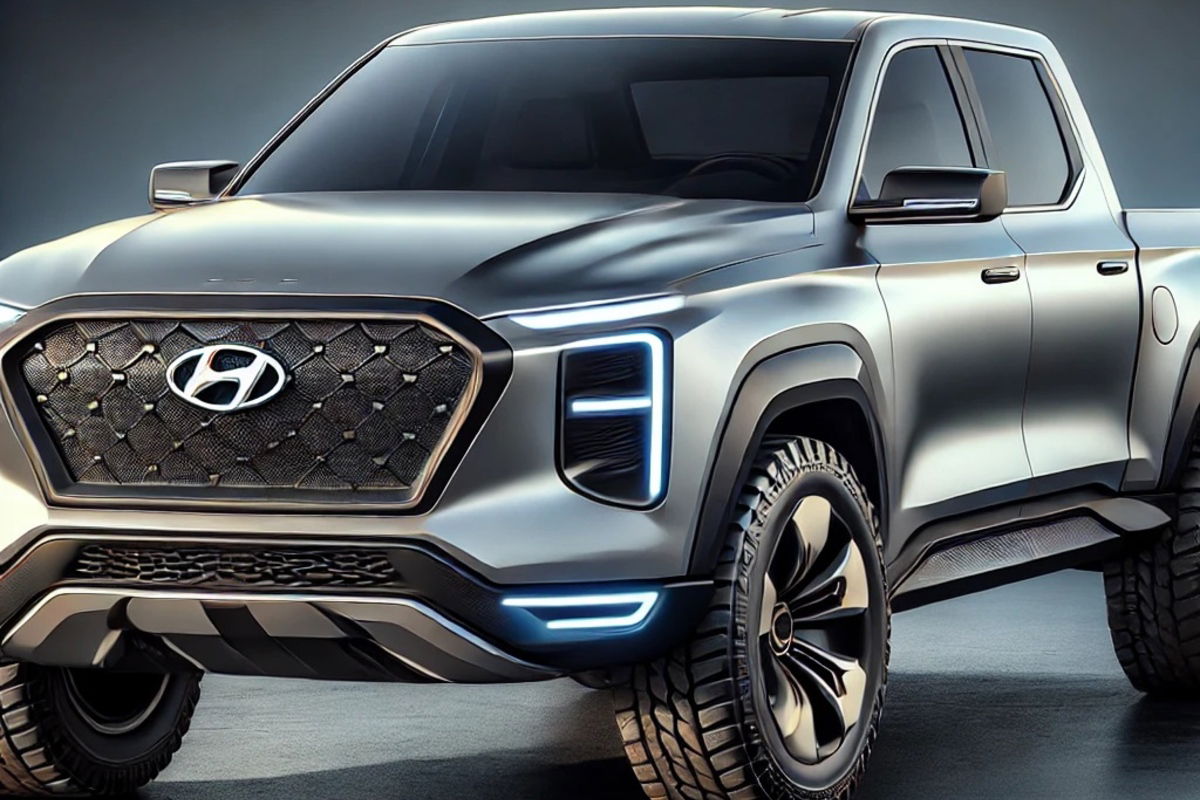

Supercars shouldn’t bank its future on manufacturer support says 2014 Bathurst winner and former Supercars Commission member, Paul Morris.
Speaking on the Speedcafe Podcast released today, Morris explained that the instead of attempting to attract more car makers, Supercars should instead future-proof the category to no longer depend on them.
“I think it’s going to get to the point where that championship has to survive without manufacturer backing,” Morris said.
“That’ll be the big question going forward: How do you deal with the OEMs? Is their relevance still going to be in the sport? Do you still need their money to run those cars? That’s the big question.”
“For me, I’d be trying to future proof that championship by not being heavily involved [with] them.”
Ford outshines General Motors’ Chevrolet as the biggest OEM (Original Equipment Manufacturer) investor in Supercars – even if some of that has been recently pulled back – but Supercars has looked at ways to encourage brands into the category.
While Supercars has used a control chassis for some time, both for Gen2 and the 2023 introduction of the Gen3 ruleset, it also proposed a ‘white label’ engine program designed to appeal to brands beyond GM and Ford.
Supercars has made it clear that V8 engines were critical in maintaining its fanbase during the development of Gen3 – experimenting with turbocharged six-cylinder engines before dropping them in favour of bent-eights.
The ‘white label’ idea was to enable the control chassis to run the bodywork of other car makes/models that may not be offer a production V8 engine – such as the six-cylinder Toyota Supra – encouraging their entry into the category.
Yet as reported by Roland Dane on Speedcafe, Ford rejected the idea, not wishing to see its brand competing with a ‘no-name’ rival – even if the plan used Ford’s own Coyote V8 as the basis for the concept.
Supercars CEO Shane Howard has been consistent in saying that Supercars is open to working with ‘any manufacturer’ that may express a desire to enter the sport.
Major brands, such as Toyota and former Supercars competitor Nissan, have ruled out competing when queried by media – yet that’s not a problem, says Morris.
“What are those cars going to look like in the future? Hey, you just might end up with a generic body shape – that might be anything – and race that. It’s got to be the entertainment value.
“One of the best racing [series] you see around is Sprintcar racing and they’re not anything.
“And then when you look at it, there’s probably only a couple of teams getting any real money from any OEMs, and the other guys might get a few road cars off some deals and stuff.
“So it’s one or two teams that are benefiting … Has anyone added up what the true input of that value is to the championship?
“That’s the big question moving forward. If enough people come through the gate and turn the TV on, you probably don’t need them.”
Listen to the full podcast on Apple Podcasts, Spotify or on Speedcafe.com




















Discussion about this post